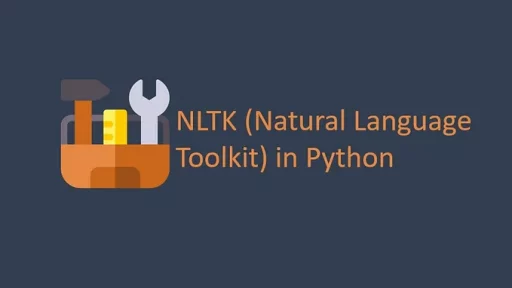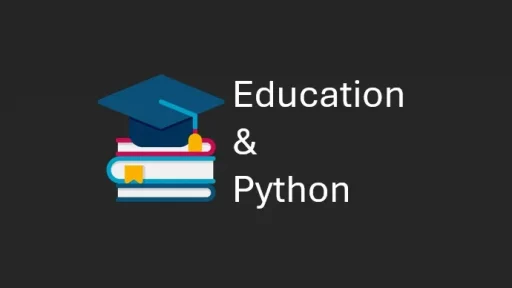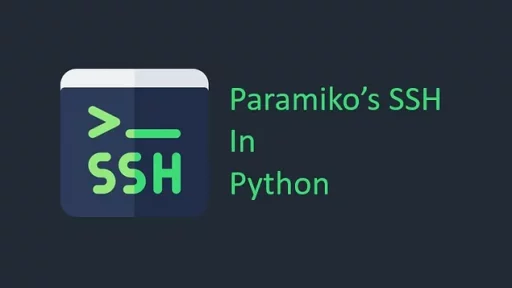Python has become an established programming language, and for good reasons. Python has clear syntax. It has readability and a vast library of tools. And it’s perfect for beginners and experienced programmers alike.
If you’re starting or hoping to advance your Python skills, it can be helpful to know where to go, who to follow, and which resources provide the best guidance. This article will walk you through some of the best ways to learn Python, so let’s dive in.
Why Python?
Python’s simplicity makes it accessible to new coders, yet it’s also powerful enough for complex projects like machine learning and data science. Python has a low learning curve and an active community, meaning you’ll find abundant resources to answer your questions.
Getting Started with Python Basics
Before jumping into complex tutorials or advanced courses, start with the fundamentals. Download Python from the official Python website, where you’ll also find a great set of beginner tutorials.
The Python Documentation serves as an invaluable guide. It’s well-organized and breaks down the language’s features in a clear way. Go through sections like “Tutorial” and “Library Reference” to gain insight into Python’s syntax and built-in functions.
Great Books to Read
Books are an excellent way to learn Python in a structured manner. Here are a few highly recommended ones:
- “Python Crash Course” by Eric Matthes
This book offers a hands-on approach to learning Python, especially suited for beginners. It starts with the basics and then moves into projects like a game, data visualizations, and web applications. Check it out on Amazon. - “Automate the Boring Stuff with Python” by Al Sweigart
Practical and accessible, this book teaches Python through automation. You’ll learn how to write scripts for web scraping, data processing, and more. It’s also available for free online at automatetheboringstuff.com. - “Fluent Python” by Luciano Ramalho
For those already familiar with Python basics, this book dives into more advanced techniques and explores the language in depth. Visit the book’s official page on O’Reilly for more information or on Amazon.
Websites and Platforms for Python Learners
Several online resources provide Python tutorials, exercises, and projects. Here’s a list of some popular sites to explore:
- Real Python
Real Python offers comprehensive Python tutorials for all levels. Whether you’re just starting out or looking to refine your skills, Real Python has articles, video courses, and quizzes that cover various topics, including web development, data science, and automation. - Codecademy
Codecademy offers an interactive Python course that’s beginner-friendly. It includes a blend of exercises, quizzes, and projects that make learning Python hands-on and engaging. - LeetCode
For those looking to build problem-solving skills, LeetCode has a variety of Python-based challenges that range from simple to complex. It’s a great way to prepare for coding interviews or hone your skills. - PyBites
PyBites offers a unique way to learn through Python coding challenges. Their platform encourages users to improve coding skills by solving practical problems, which they post regularly. - GeeksforGeeks
GeeksforGeeks provides Python tutorials for all levels. The site covers everything from simple syntax to advanced topics like machine learning. It’s a valuable resource for explanations of common programming concepts.
YouTube Channels
YouTube has tons of channels where Python developers post tutorials, coding tips, and project walkthroughs. Here are some popular channels to check out:
- Corey Schafer
Corey Schafer’s channel offers tutorials on Python, Flask, Django, and more. His clear, thorough explanations make it easier to follow along, and he covers a wide range of Python topics. - Sentdex
Sentdex specializes in Python tutorials with a focus on data science, machine learning, and deep learning. He has over a thousand videos that explore everything from beginner topics to advanced neural networks. - Programming with Mosh
Mosh Hamedani’s channel covers several programming languages, including Python. His Python for beginners series is ideal if you’re just starting out, as he covers concepts in a concise, structured manner.
Who to Follow on GitHub
GitHub is a fantastic place to explore Python projects and learn from other developers. Here are some repositories and profiles worth checking out:
- TheAlgorithms
This is one of the most starred Python repositories on GitHub, featuring a vast collection of algorithms implemented in Python. Studying these algorithms can help deepen your understanding of data structures and logic. - jakevdp/PythonDataScienceHandbook
Jake VanderPlas’ repository accompanies his popular book, “Python Data Science Handbook.” It covers topics like data manipulation, machine learning, and visualization. It’s a helpful resource for anyone interested in data science. - kennethreitz/requests
Created by Kenneth Reitz, this is the most popular HTTP library for Python. Reading through its code and issues will show you how to structure Python projects and develop powerful applications. - Kaggle’s Python Course
Kaggle’s GitHub repository offers a Python course and numerous data science challenges. It’s a practical place to dive into real-world data science problems and compete with other Python developers. - pandas-dev/pandas
If you want to explore a major library, check out the Pandas library repository. Pandas is essential for data analysis and manipulation in Python, and reviewing its code is a good way to understand library development.
Go Hands On
Below are five ideas that can help you dive into different areas of Python, from string manipulation to using libraries and handling app programming interfaces (APIs).
1. Password Generator
Create a program that generates a secure, random password based on user-defined criteria like length and character types (uppercase, lowercase, digits, and special characters). This project will improve your understanding of string manipulation and the random module. Save this as password_generator.py.
Resources: Check out GeeksforGeeks Password Generator Tutorial for a step-by-step guide.
2. Simple Quiz Game
Design a quiz game where you ask the user multiple-choice questions. Use a dictionary to store questions and answers, and build a simple scoring system. This project is perfect for practicing loops, conditionals, and collections. Save this as quiz_game.py.
Resources: Visit Python Principles Quiz Game Example for a beginner’s guide on building a quiz game.
3. Currency Converter
Write a script that converts one currency to another using real-time exchange rates. The ExchangeRate-API or exchangeratesapi.io provide free access to exchange rate data. This project is excellent for practicing API integration and JSON handling. Save this as currency_converter.py.
Resources: For a full tutorial, see Real Python’s API Integration Guide.
4. Simple Weather App
Build a small program that lets the user check the weather for any location using the OpenWeatherMap API. This project introduces you to API usage and data parsing with JSON. Save this as weather_app.py.
Resources: Check out OpenWeatherMap’s Python API Guide for step-by-step instructions.
5. Number Guessing Game
Create a number guessing game where the program picks a random number, and the user has to guess it within a set number of attempts. This is a great project for practicing conditional statements, loops, and handling user input. Save it as number_guess.py.
Resources: Visit Python for Beginners Number Guessing Tutorial for a code example.


